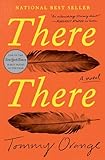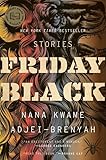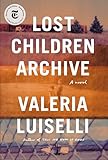What a year this has been. Do I mean it was really good or bad? It can’t just have been one of those. I just mean it was crazy. My novel There There came out and it’s hard to believe how well it’s been received. Because I had a debut come out this year, I met a lot of other debut novelists, and read a lot of debut novels. I want to mention three of these all at once because while they are very different novels, they were all written by authors who live or have lived in the Bay Area. Fatima Farheen Mirza’s A Place for Us, Elaine Castillo’s America Is Not the Heart, and Ingrid Rojas Contreras’s Fruit of the Drunken Tree are all beautiful, original and heartbreaking works. Each deal in different ways and to different extents: family, coming of age, and belonging.






There were three standout nonfiction books I read this year. The first is Terese Mailhot’s Heart Berries. It’s a powerful and important book I think everyone should read. Now. The second is Pam Houston’s Deep Creek (forthcoming in January). It’s an expansive meditation on our relationship to this earth through the experience of her owning and maintaining a ranch in the mountains in Colorado. The third is Rigoberto Gonzalez’s What Drowns the Flowers in Your Mouth, which is about his brother. The prose is plain and stunning and the story powerful and compelling.



I’m fairly new to poetry, and feel pretty mystified by it still, but I love it. Three books I read this year that I loved were Tommy Pico’s Junk, Sherwin Bitsui’s Dissolve, and Ada Limón’s The Carrying.



I very much loved three short story collections this year, two debut, and one a possible very last—if there are no posthumous collections. I’ll mention the last one first, which is Denis Johnson’s The Largesse of the Sea Maiden. Denis Johnson is one of my favorite writers, and I had the extreme pleasure—mixed with extreme sadness—of finishing his collection while landing in Memphis; the collection ends with a story about Elvis. The other two are Nana Kwame Adjei-Brenyah’s Friday Black, which I reviewed for the New York Times, and Nafissa Thompson-Spires’ Heads of the Colored People—which just blew me away, so smart and funny and poignant.



I also want to mention Lost Children Archive by Valeria Luiselli, which is impossibly smart and full of heart (forthcoming February 2019), and finally, two books I’m currently reading I already love and will regret to finish. The first is Tao Lin’s Trip: Psychedelics, Alienation, and Change. It’s about Terrence McKenna and psilocybin among other things. I think Terrence McKenna is a forgotten (mostly) genius, and I have a deep respect for psilocybin. Tao Lin does a fantastic job of exploring a subject not explored often enough. Lastly, I’m deliberately taking my time reading Ocean Vuong’s novel, On Earth We’re Briefly Gorgeous. He is one of my favorite poets, and I always want poets to write novels, so reading his book is a dream come true. It’s devastatingly beautiful.
More from A Year in Reading 2018
Don’t miss: A Year in Reading 2017, 2016, 2015, 2014, 2013, 2012, 2011, 2010, 2009, 2008, 2007, 2006, 2005
The post A Year in Reading: Tommy Orange appeared first on The Millions.
from The Millions https://ift.tt/2R4gI42
Comments
Post a Comment